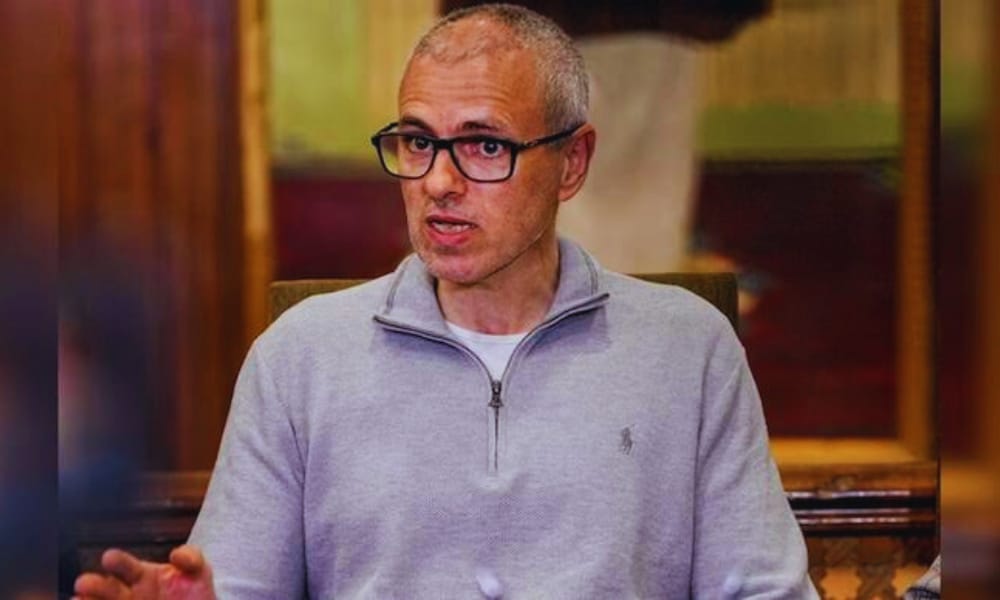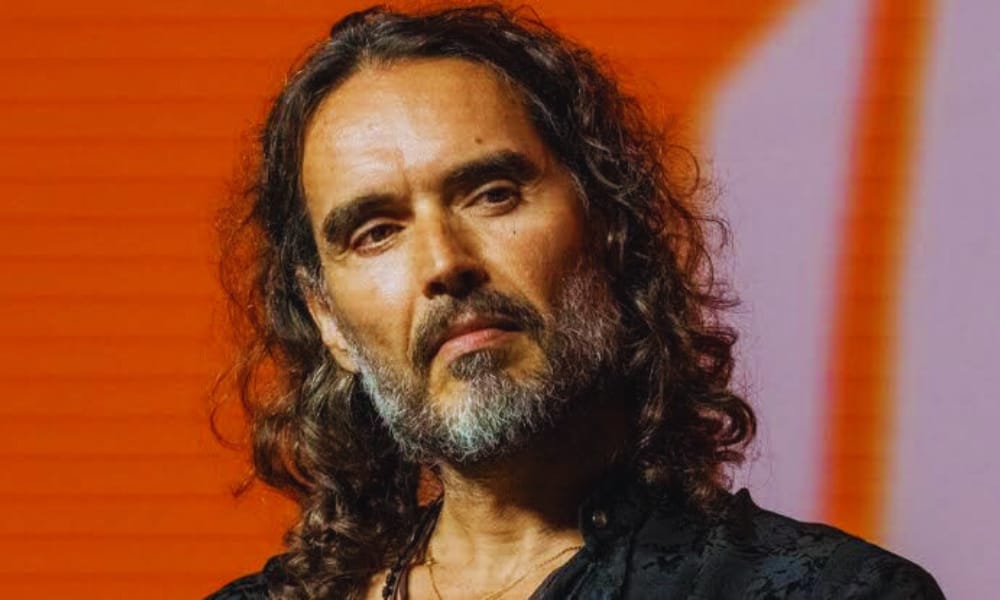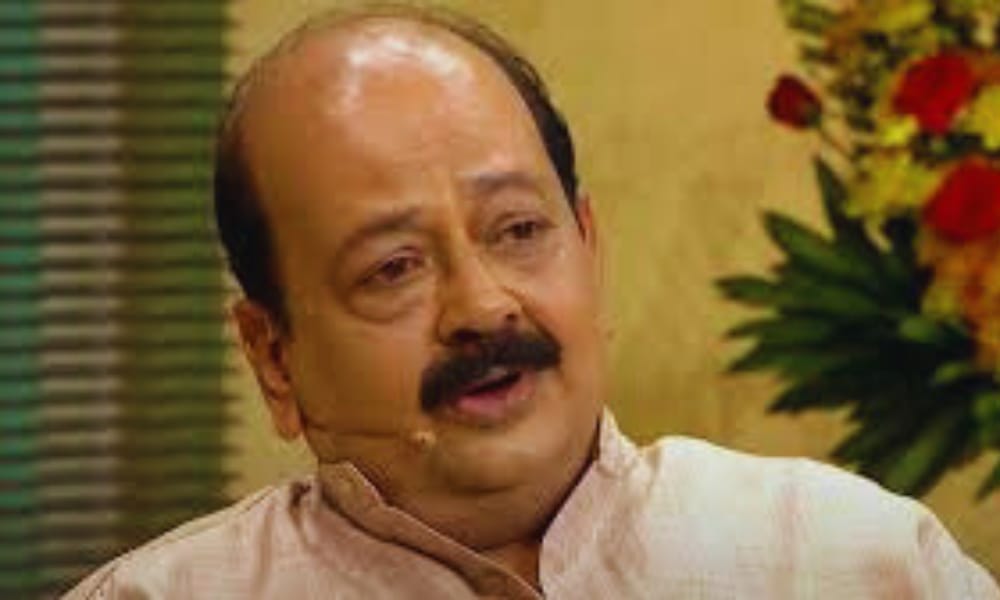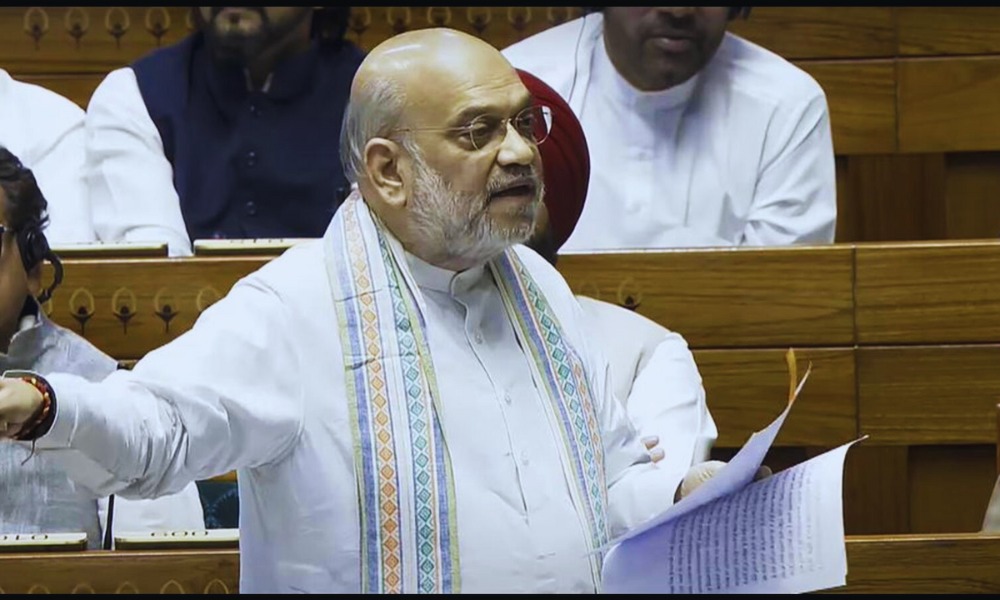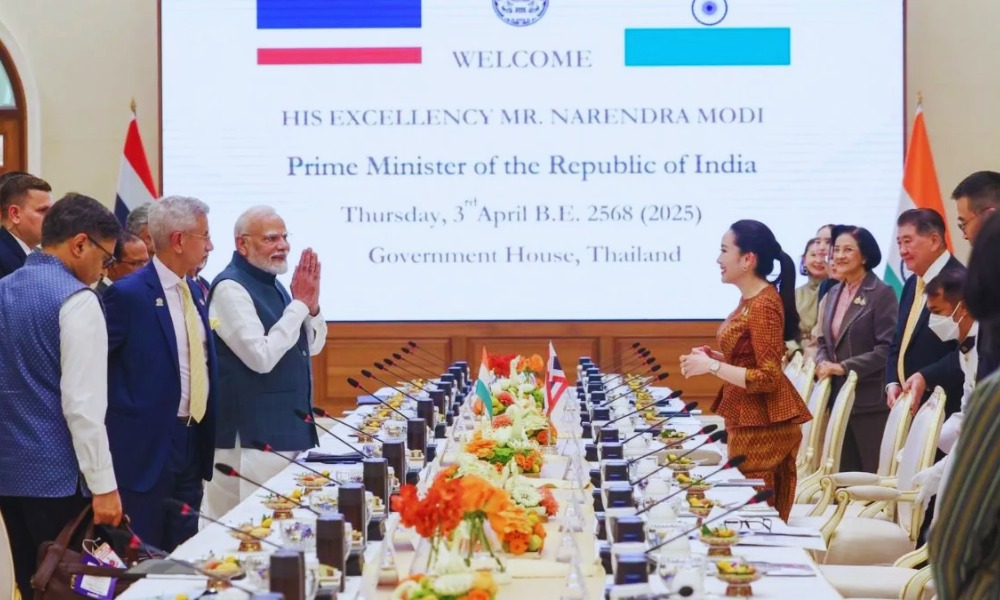PM Modi Holds First Talks with Bangladesh’s Chief Advisor Muhammad Yunus After Hasina’s Exit
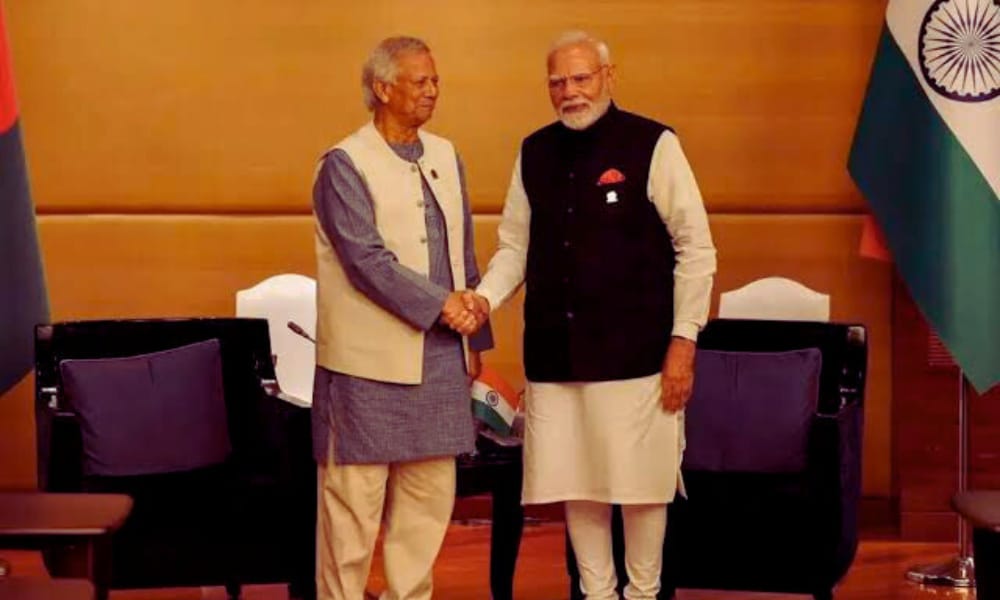
Prime Minister Narendra Modi held a bilateral meeting with Bangladesh’s Chief Advisor Muhammad Yunus on the sidelines of the sixth BIMSTEC Summit in Bangkok, Thailand.
This interaction came after Dhaka’s request for a meeting to resolve ongoing tensions between the two countries. Although initially not listed in Modi’s Thailand schedule, the meeting took place amid rising diplomatic challenges.
Growing Strains Over Minority Safety and Hasina’s Asylum
Tensions between the two nations have heightened due to alleged violence against Hindu minorities in Bangladesh and India’s decision to grant asylum to former Bangladeshi Prime Minister Sheikh Hasina.
Yunus, during his visit to China for the Boao Forum for Asia, made remarks regarding India’s northeastern states that added to the strain.
He suggested that these landlocked states depended on Bangladesh for ocean access, sparking backlash from Indian leaders.
Modi and Yunus were seen seated together during a dinner hosted at the summit. Reports had earlier indicated a likely meeting between the two leaders.
This marks the first high-level interaction between India and Bangladesh’s interim leadership following Hasina’s flight to India in August after student protests ended her long-standing regime.
India Reaffirms Commitment to Regional Cooperation
In a previous letter to Yunus, Prime Minister Modi stated: “India remains committed to advancing its partnership with Bangladesh, driven by the common aspirations for peace, stability, and prosperity, and based on mutual sensitivity to each other’s interests and concerns.”
The Bay of Bengal Initiative for Multi-Sectoral Technical and Economic Cooperation (BIMSTEC) includes seven South and Southeast Asian nations, representing a population of 1.73 billion and a GDP of $5.2 trillion.
This summit was the first in-person meeting of leaders since 2018, with Thailand as the current chair.
India Raises Key Concerns
During the meeting, Prime Minister Modi voiced concerns regarding the safety of minorities in Bangladesh, particularly Hindus.
External Affairs Minister S. Jaishankar and National Security Advisor Ajit Doval also attended the meeting. Modi emphasized avoiding inflammatory rhetoric that could damage diplomatic ties, in reference to Yunus’ earlier statements on the Northeast.
Foreign Secretary Vikram Misri stated, “The Prime Minister reiterated India’s support for a democratic, stable peaceful, progressive and inclusive Bangladesh.”
He stressed a people-centric relationship and cooperation between the two nations that has yielded positive outcomes. Modi reiterated India’s desire to maintain pragmatic, constructive relations.
Border Security and Minority Protection
Modi urged for strong enforcement of laws at the India-Bangladesh border, especially to prevent illegal crossings at night. He also insisted on a thorough investigation into incidents of violence against minorities in Bangladesh.
According to Misri, Modi made clear India’s expectations for Bangladesh to ensure the safety and security of minority communities. These issues have been central to India’s diplomatic concerns since the interim government took over.
Bangladesh Seeks India’s Cooperation
Bangladesh issued its own statement about the meeting. Yunus expressed appreciation for India’s longstanding support, stating, “The deep-rooted friendship between our two countries is founded on intertwined histories, geographical proximity, and cultural affinity.”
Yunus requested India’s support for a Free Trade Agreement among BIMSTEC members and called for renewed discussions on the Ganges Water Treaty and finalization of the Teesta Water Sharing Agreement.
He also sought action on the extradition of Sheikh Hasina, citing her inflammatory remarks from India, which he claimed were destabilizing Bangladesh.
Yunus Responds to Minority Issue and Ocean Remarks
Addressing Modi’s concerns about attacks on minorities, Yunus stated that most reports were exaggerated or fabricated.
“The Chief Adviser said he has instituted an effective system for monitoring every incident of religious and gender violence in the country, and his government was taking serious actions to stop any occurrence of such incidents,” Bangladesh’s statement said.
Yunus’ previous remarks during his China trip about Northeast India caused diplomatic friction.
He described the region as landlocked and Bangladesh as the “guardian of the ocean” for the area, suggesting potential connectivity with the Chinese economy.
Backlash from Indian Leaders
Assam Chief Minister Himanta Biswa Sarma sharply criticized Yunus’ comments, calling them “offensive” and advocating for stronger infrastructure to connect the Northeast with the rest of India.
He emphasized the vulnerability of the “Chicken’s Neck” corridor and urged exploration of alternative routes to reinforce national integration.
Sarma warned, “Such provocative statements by Md Younis must not be taken lightly, as they reflect deeper strategic considerations and longstanding agendas.”
Shared History and Future Prospects
In a message to Yunus on March 26, Prime Minister Modi highlighted shared historical bonds between the two nations, especially during the Bangladesh Liberation War.
“We remain committed to advancing this partnership, driven by our common aspirations for peace, stability, and prosperity,” he wrote.
The first formal meeting between Modi and Yunus since the leadership change in Dhaka signals a complex but ongoing effort to stabilize India-Bangladesh relations amid evolving geopolitical challenges.




